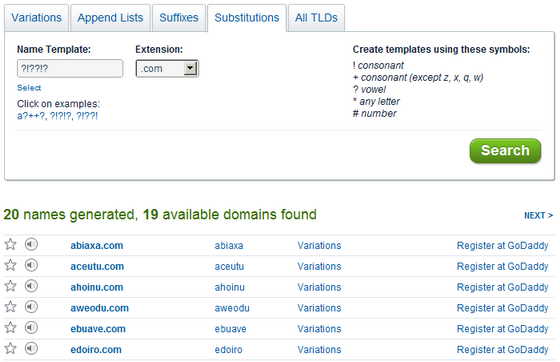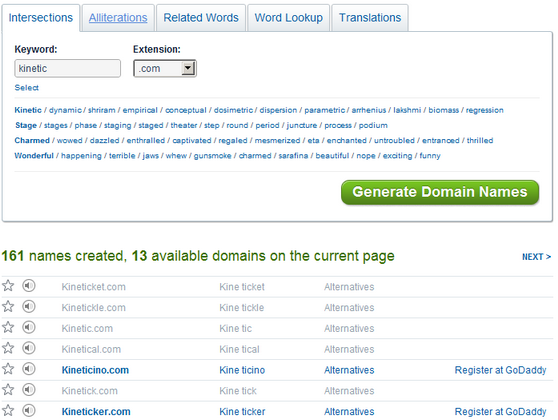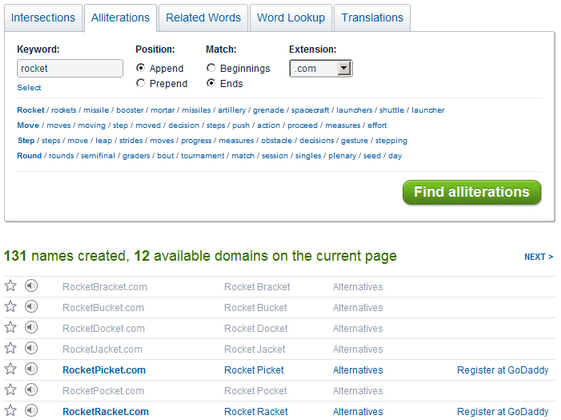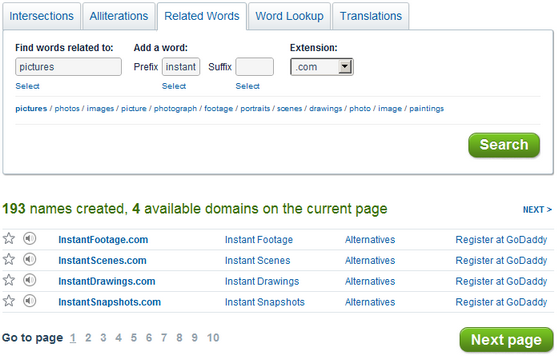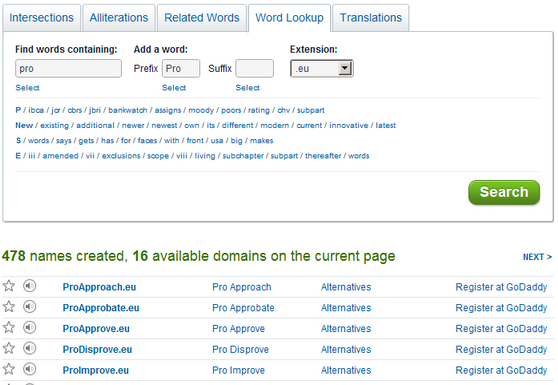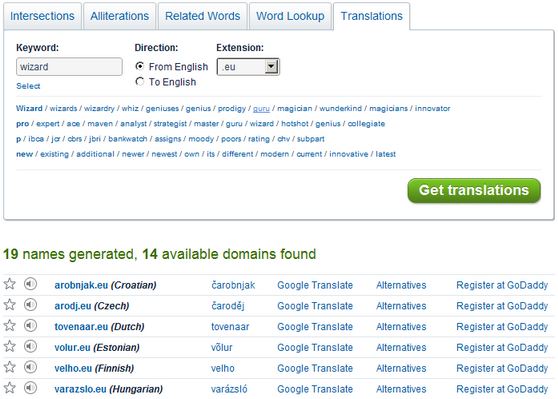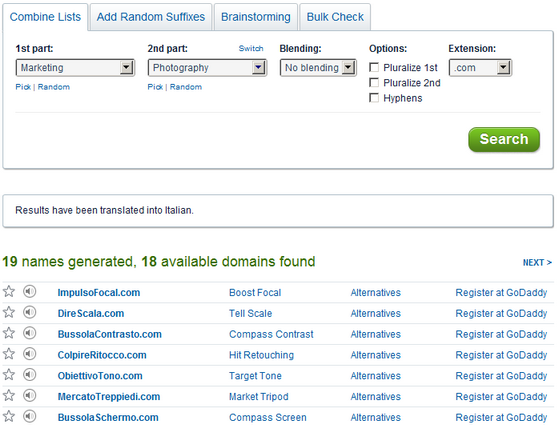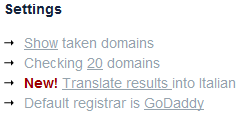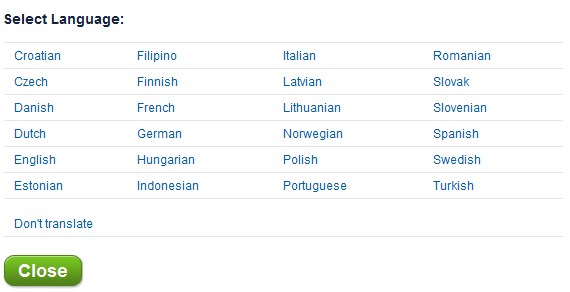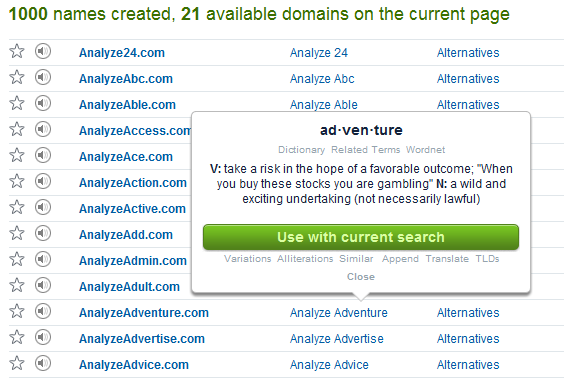You have probably heard about websites such as Pinterest, Zynga, Flickr or Instagram. Those names, characterized as web 2.0-ish, are a step forward from the ordinary this-site-is-about.com names. From the previous article you got an idea what are web 2.0 names in general and now it’s time to get down to it and create some names yourself. If you are thinking about applying web 2.0 naming techniques to your own business, you might want to check the variety of name creation features on NameStation.
Getting down to business
Let´s take the first name on the list – Pinterest. It is a combination of two different words – pin and interest. The domain search tool to use on NameStation to obtain such results most effectively is Combine Lists. It blends two conceptual word lists with the possibility to choose whether you want the whole word to appear in the name or just a part of it.
For example, when looking for a name for a fitness blog, you may combine the lists like Health and Dynamic, Positive and Sport, Your Contest Keywords and Health, etc. It all depends on the concepts that you need to be reflected in the name of your company.
To create business names that include a particular word or a part of this word, choose Append Lists. This feature allows you to combine the word with any of the predetermined conceptual word lists. You can also choose if you want the word to appear at the beginning or at the end of the name.
Even more web 2.0-ish – looking further from compounds
If you don’t need your name to resemble a compound, you should also try the Substitutions Search or Random Name Generator to coin new words such as Zynga or Meebo.
The Random Name Generator is the easiest way to create names that essentially have no meaning; consequently, they won’t evoke any associations with your field of business. Such names could be very distinctive and in addition they enable you to build up the meaning of your brand from scratch.
For a wider selection of name alternatives, you could also use the Random Name feature in different languages, such as French, Latin or even Afrikaans.
Substitutions Search differs from the Random Name Generator in terms of letting you determine some parts of the name you would like your company to have. You just need to follow the key, presented on the right-hand side of the search feature.
For example, if you want to find a name, comprising of 6 letters so that the 1st, 4th and 6th letter are consonants and the rest are vowels, you can create a suitable name pattern with the help of the key. Having done that, you only need to press Search and NameStation will generate names according to your criteria. In case of the previous example, the pattern would be !**!*!.
Some examples of name patterns:
- R?!*** – 6 letters, begins with R, 2nd letter is a vowel and 3rd a consonant
- !?!?graph – ends with graph, preceded by the combination of consonant-vowel-consonant-vowel (CVCV)
- Tan****! – 8 letters, begins with tan and finishes with a consonant; in between are 4 random letters
- ?!??!? – 6 letters, begins with a vowel, followed by a consonant, 2 vowels and another consonant and a vowel.
More ideas and information are available in our User Guide.

